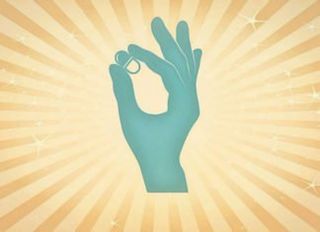

Somatic psychiatry has taken over psychiatry, and replaced an in-depth understanding of human nature. The fundamental and incorrect premise of somatic psychiatry is that the source of psychiatric problems come from defects in the brain. The false belief is that we are subject to brain diseases, and we need somatic treatments to fix them. This theory of psychiatry is now truly believed by most psychiatrists, as well as a lot of the general public at large. It’s treatments have been lobotomies, ECT, and psychiatric drugs. (for a fuller exploration of Somatic psychiatry, read the appendix to my book, “Do No Harm: The Destructive History of Pharmaceutical Psychiatry and its Bedfellows – Electroshock, Insulin Shock, and Lobotomies.”)
Unlike neurology, psychiatry is not today and has never been about brain diseases. Neurology deals with literal organic brain damage or disease, either from anatomic malformations, the death of brain cells from strokes or bleeds; damage from tumors, infections, seizures, concussions, dementias, toxic states etc. There is a clear distinction between organic diseases and functional conditions. Functional conditions refer not to the physical brain, but to the content of the consciousness it creates. Instead, psychiatry deals with the pains of life. This is manifest in the brain in a totally different fashion.
As I have shown elsewhere, the highest organization of the brain is the creation of the play of consciousness. We write our plays as we adapt to life. These plays are written by the emotional centers of the brain, the Amygdala, and the limbic system. Trauma, deprivation and abuse, especially in the early years and continuing all the way through life, informs the writing of our plays. As a result of trauma one adapts by writing darker plays. This the real source of psychiatric symptoms and suffering. The plays operate in keeping with the way the brain actually functions in consciousness. The play and its adaptations are what defines functional conditions.
Somatic psychiatry has usurped the idea as to what is biological. Of course, we are biological creatures. And yes, everything we know, think, and feel comes from the brain. But psychiatric symptoms do not come from brain lesions creating diseases. It’s not anatomic, structural connectivity, or the microbiology of synapses and neurotransmitters. Obsessions, compulsions, phobias, anxiety, depression, and even schizophrenia and manic-depression reflect the way our play gets written by our adaptation to trauma. This is the true level by which our biology operates psychiatrically.
The appropriate treatment is psychotherapy. Through psychotherapy one recovers from problematic plays by mourning them in the context of trust and caring in the therapeutic relationship. It specifically heals the trauma in the same way it formed in the first place.
Historically, psychiatric diagnoses were never intended to signify literal brain diseases. They used to be a shorthand and a guide to point to the psychological issues that presented. This is how it still should be today. The way diagnosis is now used is a travesty.
Psychiatric patients are being told they have a brain disease. And they really believe there is something genetic and biochemically wrong with them. Diagnoses never were intended to label and reduce our humanity. Psychiatric symptoms and suffering is purely a human problem. I do not use diagnosis at all. I attend to the person. Symptoms point to issues, which I deal with as they present themselves. Psychotherapy is the only practice which is humane, respectful, and caring. And it works.
Let’s take a brief review of somatic psychiatry, and the faulty science used to promulgate it. For lobotomies, the apparent locus in the brain for human problems was believed to be the prefrontal cortex. Since this part of the brain is the problem, let’s ream out the frontal lobe. In case there is confusion about the science, Antonio Egas Moniz, the inventor and promoter of this medieval horror actually received the Nobel Prize for his great work. Thankfully this dark chapter in psychiatric history seems to have passed. But not so fast. It has now reappeared in a different form: the promise of new drugs to erase traumatic memories. Life can be a happy dream. Let’s excise the bad and keep the good brain cells. Let's control memory itself. This new improved model is actually chemical psychosurgery. A Brave New World indeed. Life is difficult. Trauma does leave scars. There is only one way to deal with trauma, loss, and pain, and that is to mourn it. It’s part of the human condition.
Shock treatments whether electrical or chemical goes back centuries. The purpose is to induce a grand mal seizure. The science was always bizarre. The theory was that seizures are the opposite of schizophrenia. Therefore a seizure will correct an imbalance in the brain, sound familiar? It’s like the Prozac theory of correcting chemical imbalances in the brain, (a theory which has also been discredited). Many psychiatrists to this day still consider shock treatments the gold standard of psychiatry. Somatic psychiatry has now drifted over to neurostimulation therapeutics: Deep Brain Stimulation. We selectively pinpoint a small locus of brain cells. Zap them, and it fixes that damaged clump of brain cells, and the connected cells downstream. Now it begins. We are already on route, with ‘evidence-based’ studies, that will demonstrate the alleged effectiveness for DBS for the ‘diseases’ of depression, obsessive-compulsive, phobias, post-traumatic stress, anxiety, and schizophrenia. Millions of dollars will be spent to prove these ‘promising’ theories. And with good marketing, they will soon turn into beliefs. In time, it will be shown that these treatments don’t do anything constructive, and somatic psychiatry will move on to something new.
In the domain of pharmaceutical psychiatry, there haven’t been any new developments in years. We were told that ‘biological depression’ would finally be cured as we moved into the heyday of antidepressants. Get everybody on Prozac. In fact, the opposite happened. Deaths from suicide have increased 24 percent from 1999 to 2014. It is now the 10th leading cause of death in the United States. The suicide rate for middle-aged women, ages 45 to 64, jumped by 63 percent over the period of the study, while it rose by 43 percent for men in that age range, according to the National Center for Health Statistics, as reported by the NY Times, April 22, 2016. In fact, black box warnings have been put on antidepressants for children and adolescents because antidepressants have been implicated as a cause of suicide. The real evidence is clearly mounting that the same danger applies to adults as well. Never mind the side effects - where people become estranged from their feelings, have no sexual feelings, addiction, and habituation. It is almost impossible to detox from these drugs without horrible and debilitating symptoms. Patients are now told they must take the antidepressants for life for their disease. And when habituation takes place, new ones are added in.
Ben Goldacre in his illuminating Ted lecture, “What doctors don’t know about the drugs they prescribe” reveals the science behind ‘evidence-based studies’, which are evidence-based in name only. A 15-year review of antidepressant studies showed that 50 percent of the 76 studies were positive and 50 percent were negative. All of the positive studies were published and all but three of the negative studies were suppressed and not published. In 2004 approximately half of all studies that weren’t already suppressed by the pharmaceutical industry concluded that antidepressants are not significantly more effective than placebo alone. And two-thirds of studies for children given antidepressants show the same. Even the standard for the positive studies by which effectiveness is scientifically accepted is that if antidepressants work 40 percent of the time and Placebos work 30 percent of the time, it is deemed to be an effective drug. This means that the antidepressants apparently work 10 percent of the time in half the studies. In real science, the exception proves the rule. For a theory to be correct it has to be correct 100 percent of the time.
Somatic psychiatrists are now moving in new and bizarre directions, as the ineffectiveness of antidepressants shines through. Hallucinogenic drugs are being promoted as a cure for depression, alcoholism and the rest of psychiatry. The ‘evidence-based studies’ are beginning, and not surprisingly, it claims to be showing great promise. Here’s a good one. The bacteria in our gut is the cause for depression. The new theory is the microbial imbalance theory for depression, add it to the serotonin imbalance theory. Once again, the ‘evidence-based’ studies claim it is showing great promise.
Somatic psychiatry has been so effectively marketed that most people believe in it. Belief is so very powerful. It is actually considered reasonable and constructive to be given a psychoactive pill for the human condition. Should we actually take seriously that our gut bacteria cause depression? Do you think we all should drop acid and that’ll straighten out our lives? Perhaps we should zap our brains with DBS? Hold on to your hats.



